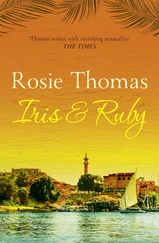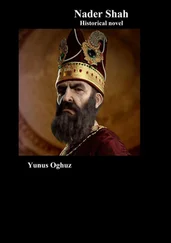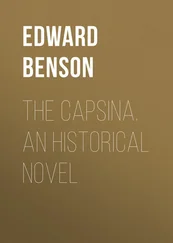O. Douglas
Penny Plain (Historical Novel)

Books
OK Publishing, 2020
musaicumbooks@okpublishing.infoTous droits réservés.
EAN 4064066396534
CHAPTER I
CHAPTER II
CHAPTER III
CHAPTER IV
CHAPTER V
CHAPTER VI
CHAPTER VII
CHAPTER VIII
CHAPTER IX
CHAPTER X
CHAPTER XI
CHAPTER XII
CHAPTER XIII
CHAPTER XIV
CHAPTER XV
CHAPTER XVI
CHAPTER XVII
CHAPTER XVIII
CHAPTER XIX
CHAPTER XX
CHAPTER XXI
CHAPTER XXII
CHAPTER XXIII
CHAPTER XXIV
CHAPTER XXV
Table of Contents
"The actors are at hand,
And by their show
You shall know all that you are like to know."
Midsummer Night's Dream .
It was tea-time in Priorsford: four-thirty by the clock on a chill
October afternoon.
The hills circling the little town were shrouded with mist. The wide bridge that spanned the Tweed and divided the town proper—the Highgate, the Nethergate, the Eastgate—from the residential part was almost deserted. On the left bank of the river, Peel Tower loomed ghostly in the gathering dusk. Round its grey walls still stood woods of larch and fir, and in front the links of Tweed moved through pleasant green pastures. But where once ladies on palfreys hung with bells hunted with their cavaliers there now stood the neat little dwellings of prosperous, decent folk; and where the good King James wrote his rhymes, and listened to the singing of Mass from the Virgin's Chapel, the Parish Kirk reared a sternly Presbyterian steeple. No need any longer for Peel to light the beacon telling of the coming of our troublesome English neighbours. Telegraph wires now carried the matter, and a large bus met them at the trains and conveyed them to that flamboyant pile in red stone, with its glorious views, its medicinal baths, and its band-enlivened meals, known as Priorsford Hydropathic.
As I have said, it was tea-time in Priorsford.
The schools had skailed , and the children, finding in the weather little encouragement to linger, had gone to their homes. In the little houses down by the riverside brown teapots stood on the hobs, and rosy-faced women cut bread and buttered scones, and slapped their children with a fine impartiality; while in the big houses on the Hill, servants, walking delicately, laid out tempting tea-tables, and the solacing smell of hot toast filled the air.
Most of the smaller houses in Priorsford were very much of one pattern and all fairly recently built, but there was one old house, an odd little rough stone cottage, standing at the end of a row of villas, its back turned to its parvenu neighbours, its eyes lifted to the hills. A flagged path led up to the front door through a herbaceous border, which now only held a few chrysanthemums and Michaelmas daisies (Perdita would have scorned them as flowers for the old age), but in spring and in summer blazed in a sweet disorder of old-fashioned blossoms.
This little house was called The Rigs.
It was a queer little house, and a queer little family lived in it. Jardine was their name, and they sat together in their living-room on this October evening. Generally they all talked at once and the loudest voice prevailed, but to-night there was not so much competition, and Jean frequently found herself holding the floor alone.
David, busy packing books into a wooden box, was the reason for the comparative quiet. He was nineteen, and in the morning he was going to Oxford to begin his first term there. He had so long looked forward to it that he felt dazed by the nearness of his goal. He was a good-looking boy, with honest eyes and a firm mouth.
His only sister, Jean, four years older than himself, left the table and sat on the edge of the box watching him. She did not offer to help, for she knew that every man knows best how to pack his own books, but she hummed a gay tune to prove to herself how happy was the occasion, and once she patted David's grey tweed shoulder as he leant over her. Perhaps she felt that he needed encouragement this last night at home.
Jock, the other brother, a schoolboy of fourteen, with a rough head and a voice over which he had no control, was still at the tea-table. He was rather ashamed of his appetite, but ate doggedly. "It's not that I'm hungry just now," he would say, "but I so soon get hungry."
At the far end of the room, in a deep window, a small boy, with a dog and a cat, was playing at being on a raft. The boy's name was Gervase Taunton, but he was known to a large circle of acquaintances as "the Mhor," which, as Jean would have explained to you, is Gaelic for "the great one." Thus had greatness been thrust upon him. He was seven, and he had lived at The Rigs since he was two. He was a handsome child with an almost uncanny charm of manner, and a gift of make-believe that made his days one long excitement.
He now stood like some "grave Tyrian trader" on the table turned upside down that was his raft, as serious and intent as if it had been the navy of Tarshish bringing Solomon gold and silver, ivory and apes and peacocks. With one arm he clutched the cat and assured that unwilling voyager, "You're on the dangerous sea, me old puss. You don't want to be drowned, do you?" The cat struggled and scratched. "Then go—to your doom!"
He clasped his hands behind him in a Napoleonic manner and stood gloomily watching the unembarrassed progress of the cat across the carpet, while Peter (a fox-terrier, and the wickedest dog in Priorsford) crushed against his legs to show how faithful he was compared to any kind of cat.
"Haven't you finished eating yet, Jock?" Jean asked. "Here is Mrs.
M'Cosh for the tea-things."
The only servant The Rigs possessed was a middle-aged woman, the widow of one Andrew M'Cosh, a Clyde riveter, who had drifted from her native city of Glasgow to Priorsford. She had a sweet, worn face, and a neat cap with a black velvet bow in front.
Jock rose from the table reluctantly, and was at once hailed by the Mhor and invited on to the raft.
Jock hesitated, but he was the soul of good nature. "Well, only for five minutes, remember. I've a lot of lessons to-night." He sat down on the upturned table, his legs sprawling on the carpet, and hummed "Tom Bowling," but the Mhor leaned from his post as steersman and said gravely, "Don't dangle your legs, Jock; there are sharks in these waters." So Jock obediently crumpled his legs until his chin rested on his knees.
Mrs. M'Cosh piled the tea-things on a tray and folded the cloth. "Ay, Peter," she said, catching sight of that notorious character, "ye look real good, but I wis hearin' ye were efter the sheep again the day."
Peter turned away his head as if deeply shocked at the accusation, and Mrs. M'Cosh, with the tea-cloth over her arm, regarded him with an indulgent smile. She had infinite tolerance for Peter's shortcomings.
"Peter was kinna late last night," she would say, as if referring to an erring husband, "an' I juist sat up for him." She had also infinite leisure. It was no use Jean trying to hurry the work forward by offering to do some task. Mrs. M'Cosh simply stood beside her and conversed until the job was done. Jean never knew whether to laugh or be cross, but she generally laughed.
Once when the house had been upset by illness, and trained nurses were in occupation, Jean had rung the bell repeatedly, and, receiving no answer, had gone to the kitchen. There she found the Mhor, then a very small boy, seated on a chair playing a mouth-organ, while Mrs. M'Cosh, her skirts held coquettishly aloft, danced a few steps to the music. Jean—being Jean—had withdrawn unnoticed and slipped upstairs to the sick-room much cheered by the sight of such detachment.
Читать дальше













